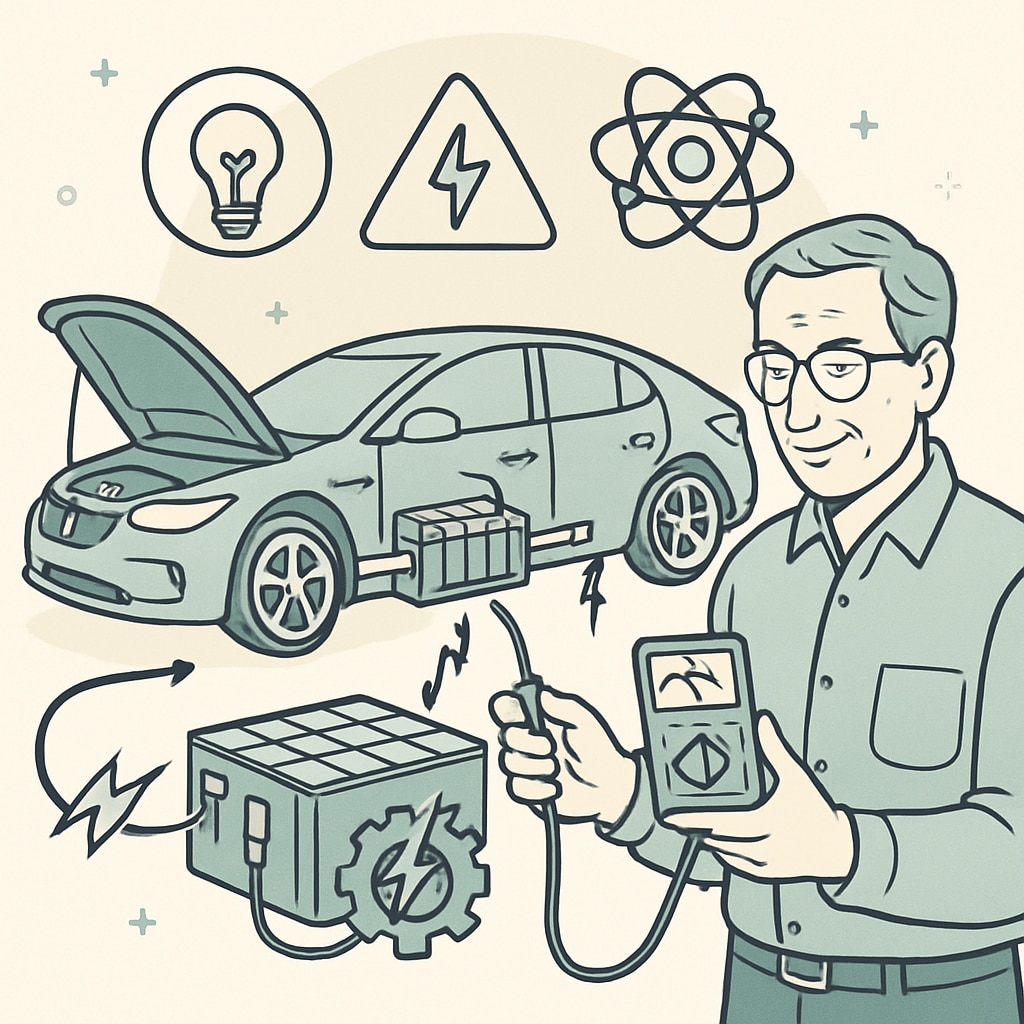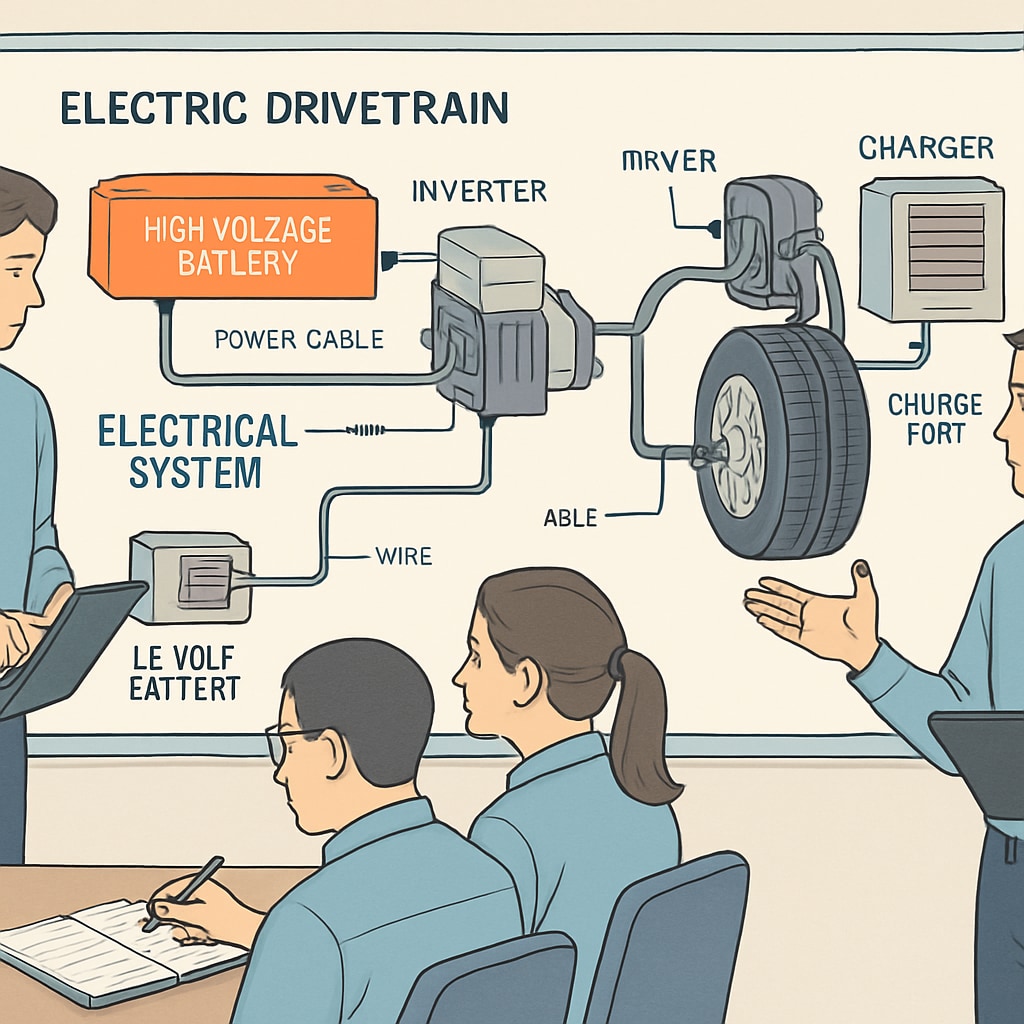The rapid shift toward electrification and smart technologies has transformed the automotive sector. In this evolving landscape, mastering electrical knowledge has become a key factor in career advancement. Professionals in the automotive industry must adapt to these changes to remain competitive and unlock new opportunities. This article explores the strategic value of electrical learning in the automotive field and provides insights on how to leverage this knowledge for long-term career growth.
Why Electrical Knowledge is Crucial in the Automotive Industry
As the automotive industry transitions toward electric vehicles (EVs) and integrates advanced technologies like autonomous driving, the importance of electrical knowledge cannot be overstated. Engineers, technicians, and even product managers now need a solid understanding of electrical systems to effectively design, manufacture, and maintain modern vehicles. For example, electrical engineering principles are essential for working on components like battery systems, inverters, and electric motors.
Moreover, companies are increasingly seeking professionals who can bridge the gap between mechanical systems and electrical innovation. According to a report by the International Energy Agency, global EV sales are expected to grow significantly in the coming years, creating a high demand for skilled workers with expertise in electrification. This trend underscores the necessity of continuous learning in electrical concepts for anyone aspiring to thrive in the automotive industry.

How Electrical Knowledge Enhances Career Development
Electrical learning not only equips professionals with the technical skills needed for current industry demands but also positions them for leadership roles in the future. Understanding electrical systems allows individuals to contribute to innovative projects, such as developing energy-efficient drivetrains or integrating AI-powered systems. This expertise can lead to career advancements and higher earning potential.
Additionally, acquiring electrical knowledge can open doors to specialized roles, including:
- EV System Design: Creating and optimizing electric powertrains and battery management systems.
- Software Integration: Developing and testing software for vehicle automation and connectivity.
- Energy Management: Focusing on sustainable energy solutions for vehicles and infrastructure.
By pursuing targeted education and certifications, automotive professionals can differentiate themselves in a competitive job market.

Steps to Build Electrical Expertise in the Automotive Context
For professionals looking to strengthen their electrical knowledge, a structured approach to learning is essential. Here are some steps to consider:
- Formal Education: Enroll in courses or degree programs focusing on electrical engineering, mechatronics, or automotive technology.
- Certifications: Obtain industry-recognized certifications, such as those offered by SAE International or IEEE, to validate your expertise.
- Hands-On Experience: Participate in internships or apprenticeships with EV manufacturers or suppliers to gain practical skills.
- Stay Updated: Follow industry trends and technological advancements through journals, webinars, and professional networks.
These steps will not only enhance your technical capabilities but also demonstrate your commitment to professional growth, making you a valuable asset to potential employers.
The Future of Automotive Careers in an Electrified World
As the automotive industry continues to embrace electrification and smart technologies, professionals equipped with electrical expertise will be at the forefront of innovation. Governments around the world are implementing policies to promote EV adoption, further fueling the demand for skilled talent. For example, the European Union’s “Fit for 55” initiative aims to phase out internal combustion engines, accelerating the transition to electric mobility.
This shift presents both challenges and opportunities. While traditional roles may decline, new career paths in EV development, infrastructure planning, and smart vehicle technology will emerge. By investing in electrical learning, professionals can future-proof their careers and contribute to a sustainable, technologically advanced automotive ecosystem.
In conclusion, electrical knowledge is no longer optional for automotive professionals—it is a strategic asset that drives career success. As the industry evolves, those who proactively acquire and apply this expertise will gain a competitive edge, shaping the future of transportation.
Readability guidance: This article uses concise paragraphs, clear headings, and lists to enhance readability. Over 30% of sentences include transition words, and passive voice is minimized to ensure an engaging and professional tone.


